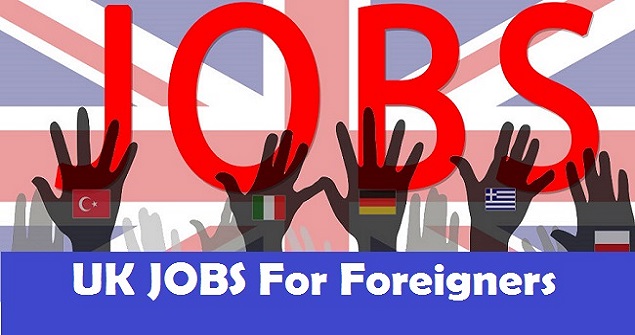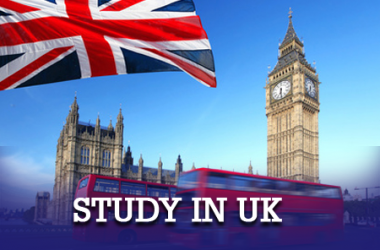Topics Under Article Hide
In the Business Statistics Briefing Paper of July 2020, it was stated that the UK was currently home to almost 6 million private sector business organizations. With this huge market available, finding jobs in UK after MBA can be considered a cakewalk. Graduates are offered a salary of around 80,000 GBP or more per year after completion of the degree.
Contents
Jobs in UK
Universities offering MBA in UK may not provide direct internships or placement services but they have career advisors and departments to help students. It is usually a 1-year degree in this country and thus can be a hefty affair for international students. Hence, many of them choose to take their career ahead within its growing economy. With the UK’s 2-year stay back policy, finding jobs will be easier from 2021 for international students.
This article discusses all the possible job roles, popular sectors, and recruiters for jobs in UK after MBA.
Popular Specializations for Jobs in UK after MBA
In the traditional 2 year MBA degree program students spend the first year learning the fundamentals of management. In their second year of study, students may choose a niche discipline to specialize in. The choice of specialization not only determines the track for the rest of their MBA program but also influences their careers. Some of the top specializations and jobs in UK after MBA are detailed below.
Jobs in UK after MBA in Finance
Despite Brexit, the financial services industry in the UK has a high demand for skilled labor. According to the latest studies conducted by the Statistica Research Department, there will be over 390,000 job vacancies available in the finance sector in London alone by 2027.
Popular jobs in UK after MBA in the finance sector and their top recruiters are:
| Job Role | Recruiters | Average Salary (GBP/month) |
| Finance Analyst | AG BARR PLC | 24,000 |
| Finance Manager | Amazon | 51,000- 122,000 |
| Manager, Financial Markets | Deloitte | 62,356 |
| Finance Officer | Goodman Manson | 30,000- 35,000 |
| Finance Manager | Morgan Law | 40,000 |
Jobs in UK after MBA in Human Resources (HR)
The HR and recruitment sector is another promising employment sector for jobs in UK after MBA. An HR professional, working in the UK can expect an average salary of 32,948 GBP. At director-level positions, MBA-HR graduates can expect salaries upward of 70,000 GBP.
| Job Role | Recruiters | Average Salary (GBP/month) |
| HR Officer | British Army | 32,800 |
| HR Graduate | Veolia | 24,000-25,500 |
| Trainee Nursing Recruitment Consultants | Globe Locums | 20,000-35,000 |
| HR Graduate Scheme | NFU Mutual | 27,250 |
| HR Placement | IBM | 18,000-19,000 |
Jobs in UK after MBA in Marketing

After studying in UK with marketing specialization in MBA enter the industry with varied opportunities but also stiff competition. With technology revolutionizing almost every aspect of the business sector, companies are seeking tech-savvy professionals with journalistic, analytical, and core marketing skills.
Looking for Admissions here? or need Help?
Some of the popular jobs after MBA in marketing in UK are:
| Job Role | Recruiters | Average Salary (GBP/month) |
| Product Specialist | TPP | 39,000 |
| Communications & Marketing | TPP | 45,000 |
| Business Management Programs | Babcock | 29,500-32,500 |
| Marketing & Sales Graduate | Michael Page | 30,000 |
| Marketing Graduate | Nestle | 30,000 |
Jobs in UK after MBA in Sales
Professionals eyeing the Sales job market in the UK may apply for various roles such as sales executive, sales manager, national sales manager, sales director etc. Apart from this, sales MBA graduates may also seek employment in advertising, PR, marketing, etc.
Some of the top recruiters and jobs in UK after MBA with sales specialization are:
| Job Role | Recruiters | Average Salary (GBP/month) |
| Sales And Business Management Graduate Scheme | NFU Mutual | 27,000-29,500 |
| Financial Services Sales Graduate Scheme | NFU Mutual | 27,000- 29,500 |
| Medical Sales- East of England | Chase People | 25,000- 30,000 |
| Business Development Representative | Egress | 27,000 |
| Marketing & Sales Graduate | Michael Page | 30,000 |
Jobs in UK after MBA in Operations
MBA graduates with a specialization in Operations have excellent prospects in terms of career advancement. Many Operations-MBA graduates start their careers as analysts before moving on to roles of project lead, principal analyst, etc.
Some of the popular jobs in UK after MBA with operations specialization are:
| Job Role | Recruiters | Average Salary (GBP) |
| Pricing Analyst | NFU Mutual | 27,250 |
| Research Analyst | Wine Intelligence Ltd | 26,000-32,000 |
| Communications Troop Officer | British Army | 32,800 |
| Commercial Manager | TPP | 45,000 |
| Graduate Business Analyst | TPP | 45,000 |
Also Check Jobs for International Students in UK
Top Recruiters offering Jobs in UK after MBA
MBA graduates usually choose professions in business management or consulting. Some of the top recruiters apart from big four offering jobs in UK after MBA are:
| Recruiter | Payscale Offered (GBP/year) |
| Oliver Wyman | 75,000 |
| Roland Berger | 54,000 |
| FTI Consulting | 64,000 |
| Bain and Company | 83,000 |
| JP Morgan Chase & Co | 143,000 |
| HSBC | 128,000 |
| Accenture | 139,000 |
| Barclays Bank PLC | 79,000 |
| Ernst Young | 125,000 |
| PricewaterhouseCoopers | 64,741 |
| Lloyds Banking Group | 66,188 |
| Santander | 40,000- 60,000 |
Highest Paying Universities for Jobs in UK after MBA
Mentioned below is a list of 10 high ranking business Schools in the UK not only in terms of the quality of education but also the average base salary earned by graduating students:
| University Name | Tuition Fee (GBP) | Average Salary (GBP/year) |
| London Business School | 78,000 | 171,518 |
| Judge Business School | 53,000 | 164,110 |
| Said Business School | 55,00 | 161,364 |
| Cass Business School | 41,000 | 134,298 |
| Manchester Business School | 43,000 | 130,954 |
| Warwick Business School | 39,000 | 117,047 |
| Imperial College Business School | 51,000 | 122,258 |
Weighted Salaries for Jobs in UK after MBA
Weighted salaries as per Financial Times MBA rankings for top business schools in UK are as follows:
How to Find Jobs in UK after MBA
For finding jobs after MBA in UK, you can look into some of the globally renowned portals like Indeed, Glassdoor, and more. Some of details on how to find a job are given below:
Popular Job Portals to look for Jobs in UK after MBA
Some of the top job hunting online portals in the UK include:
- The Guardian: The job portal of The Guardian where individuals can search for employment based on industry, salary, job location etc.
- JustLondon: This portal provides information regarding job vacancies available exclusively in the London area.
- TopJobs: This is another top UK general job board website. Job hunters can search based on industry preference specialization etc on this website.
University Career Placement Programs for Jobs in UK after MBA
Top universities in the UK offering MBA programs put much effort into ensuring that outgoing students secure jobs with competitive salaries in major companies. Universities organize career fairs, set up job interviews and networking events to help students find the right employers.
The London School of Business reports a 93% employment rate of the outgoing MBA batch within 3 months of graduation. The University of Cambridge: Judge Business School also reports a 90% employment rate within 3 months of graduation. In the University of Cranfield, MBA graduates secured jobs in top companies like IBM, Amazon, KPMG etc. 92% of their outgoing batch was employed within 6 months of graduation.
The Graduate Route

This post-study work visa will become available from the Summer of 2021 and allow international students to work in the UK for up to 2 years after graduating with their master’s degree. Individuals graduating with a PhD degree may work up to 3 years. Students studying in the UK on a Tier-4 Visa will be required to apply for the Graduate Route Visa before their student visa expires. There is no cap on the number of graduate routes that can be issued in a year and does not require sponsorship.
Tier-2 Work Visa
This visa is available to skilled workers with a valid offer of employment in the UK. Individuals can remain in the UK for a maximum period of 5 years and 14 days on this visa. In order to obtain this visa international workers are required to secure sponsorship from their employers. UK Work Visa Eligibility & Application Process
Jobs in UK after MBA at Apprenticeship & Internship Level
Apprenticeships are long-term employment programs that can take anywhere between 1-4 years to complete. On the other hand, internships are short-term employment programs and may be completed in a few weeks or months. Both provide valuable learning platforms for fresh graduates while also offering on-the-job industrial experience. As an added bonus they offer competitive salaries and other benefits.
Army Apprenticeship- Business Administration
This prestigious apprenticeship is made available by the British Army. Selected candidates will be trained in military services and learn business administration skills in tandem.
- Salary Offered: 15,600 GBP
- Application Deadline: November 30, 2020
- Location: various locations in England
- Type of Employment: Full-time
Personal Tax Centre Business Apprenticeship- EY
The tax apprenticeship program offered by Ernst and Young provides newcomers in the industry with in-depth knowledge of the UK taxation system. They will be offered an opportunity to specialize in personal tax while building valuable professional relationships with clients and senior-level stakeholders.
- Salary Offered: 21,750
- Application Deadline: N.A
- Location: Newcastle
- Type of Employment: Full Time
Chartered Manager Degree Apprenticeship- Nestle
This apprenticeship program majorly deals with Nestle products and ensuring that the products maintain good commercial performance. Skills required to excel in this job include supply chain, marketing, sales development etc.
- Salary Offered: 18,200 GBP
- Application Deadline: N.A
- Location: West Sussex
- Type of Employment: Full Time
Business Diversity Internship- Tesco
This is a 10-week summer internship program where interns will develop valuable business skills on the job. Candidates applying for the program are expected to have a 2:2 degree or equivalent qualifications.
- Salary Offered: 18,000 GBP
- Application Deadline: Rolling Entries
- Location: Welwyn Garden City
- Type of Employment: Full Time
Consulting Summer Internship- BAE Systems
This summer internship program offers interns the opportunity to act as the bridge between business and technical teams. They will be responsible for the development, design and deployment of projects to clients.
- Salary Offered: 16,800 GBP
- Application Deadline: Continuous Recruitment
- Location: Gloucester, Guildford, London
- Type of Employment: Full Time
Academics
Coming from an electronics engineering background, I was very clear on the subjects that I wanted to take in my MBA. Apart from the general and mandatory courses (it makes sense for these to be mandatory) such as Business Finance, Strategy, Marketing, Accounting and so on, I consciously selected my electives.
I chose Real Estate Finance, Trading in Financial Markets, Asset Management, Corporate Finance, Entrepreneurial Finance and Lean Six Sigma.
I scored well in these ‘very tough’ subjects and pretty well in my overall MBA academics. I didn’t get a distinction. This was anyway not my goal during the intense one year. I didn’t want to burn myself out!
Placements
The sad thing is that MBA placements for international students, even from a top university, are highly effected by the macroeconomic changes that happen at the country level. I graduated during the year when the UK voted to leave the EU and when Mr. Trump was selected as the POTUS.
This means the corporate world went crazy or maybe didn’t know how to plan their structures. This led to many companies freezing the hiring of international graduates due to more uncertainty / strictness in work visa regulations.
On the brighter side, there is always a unique space that you can create for yourself in the universe. I knew I was one of the street-smartest people in my batch and that I felt I deserved better roles than what was offered by many companies that I interviewed with. As a hard worker and by prioritising my time and actions, I managed to get many interviews.
I was also invited by Facebook for a very good role but out of the top two shortlisted candidates, the company chose the other one. I survived this heartbreak and got my first awesome job offer 3 months down the line.
Biggest Learning in the MBA
No! the biggest takeaway wasn’t that I got a fancy job and a work permit to work in England! No I am not excited about waiting for 5 years and applying for a UK citizenship!
My biggest takeaway from my MBA was that it made me all the more worldly wise.
I started to understand humans a lot more. Yes, the humans who were part of my university, from my MBA and actually the humans that I have ever interacted with!
The difference in personality types, the reasons for certain people to behave in a certain way, in what circumstances people change (permanently or temporarily), and for what reasons the conscious and unconscious biases exist in these humans.
Life after MBA
I feel a lot more calm, a lot more experienced. I feel content about experiencing life from so many different perspectives! I feel a lot more mature. I am more equipped now to enjoy and experience life. My job is great and I feel more confident now.
Another observation about many Indians living outside India.
I found that there are 4 broad categories of Indians living outside India.
First – The ones who feel their life is set now because they are in a developed country with decently paying jobs and possibly high social security. They feel they are the lucky ones who could easily move out of the country.
They don’t come across as being too proud of their roots. They try hard to be (wannabe) friends with the local people. These people on an average moved out of India more than a decade back and aren’t familiar with the qualitative modern life enjoyed by the middle-class Indians.
The second category is the ones that are very passionate about their jobs and living in a foreign country effects them a lot lesser. This category also includes a few Indians, who married a partner from another country. They have genuine friends- local and international, seem to be more content with their lives and are very forward looking.
The third category is the Indians who are in high paying/decent paying jobs and who miss being in their motherland. Every year they plan to return to India in another 2 years down the line. They have started to feel too comfortable with their status quo. Not many want to leave their dollars or pounds. A few finally take the plunge and go back to India!
The fourth category is the second-generation Indians, whose parents migrated to the West decades ago. I have mixed observations regarding this category.
I find myself at the cross junction of the Category 2 and Category 3 type.
Money Matters
If you haven’t saved enough for your MBA or your MBA finances are not massively supported by your family, the repayment time of an MBA education loan can take from 2 to 6 years. So let’s say you complete the payment of your loan in 2 years, leveraging your MBA experience, your actual wealth would start building from that time onward.
One should also be prepared for keeping a sizeable chunk of money for items such as buying a car for commuting purposes, paying for car insurance, driving license fees, high rents. Like any major city in India, the rent living in big cities in the West could take out an average of one third of your salary. So net monthly savings are not that much.
I would like to conclude this article by this popular saying: ‘Your life is somebody else’s dream.’
My present life was my dream 5 years ago…and now that I have this dream, I don’t think it is actually that exciting!
But hey. Just stay tuned! You see, life changes. I will continue sharing my post MBA life. I was also told by a mentor once that the return on investment on an MBA is achieved 3-5 years down the line.
Working after MBA in the UK – Work Permit after MBA
As an international student, if you don’t hold an EEA (European Economic Area) or a Swiss passport, you’ll have to apply for a visa to study and work in the UK. To study in the UK, please apply for a Tier 4 UK study visa.
The UK government just reintroduced the post-study work (PSW) visa which now allows students to stay back in the UK for 2 years after graduating.
Student Visa for the United Kingdom
Tier 4 UK study visa
You’ll need the Confirmation of Acceptance for Studies (CAS) letter from your university to apply for this visa. You must also prove that you have the necessary funds to support your study, which is GBP 11,385 plus the GBP 150 health care fee.
International students can now stay back in the UK for two years and find employment after graduating. Currently, international students were only allowed to stay back for four months.
You can work part-time during your studies for not more than 20 hours per week and full-time when the school is not in session. To know more detailed information on UK study visas, visit the UKVI website.
Once you have completed your MBA in the UK, you can apply for the Tier 2 sponsored visa provided that you secure a job with a Tier 2 licensed company.
Here is a detailed article on class profiles and career prospects of London Business School
Post-MBA work visa for the UK
Tier 2 work visa
Once you graduate from a full-time MBA, you are exempted from the Resident Labour Market Test. However, you’ll have to apply for the Tier 2 work visa. You also need to be employed by a licensed sponsor.
During this time, you can:
- work in the job described in your certificate of sponsorship
- study as long as it does not interfere with the job you’re sponsored for
- do a second job in certain circumstances
- do voluntary work
- travel abroad and return to the UK
- bring family members with you
However, you cannot
- own more than 10% of your sponsor’s shares (unless you earn more than £159,600 a year)
- get public funds
- apply for a second job until you’ve started working for your sponsor
There is one more way to live and work in the UK after graduating i.e. if you choose to set up your own business. For that, you’ll need to apply for a Tier 1 Graduate Entrepreneur visa.
Tier 1 Graduate Entrepreneur Visa
To apply for this visa, you need to have at least GBP 50,000 in investment funds. Most UK Business Schools offer assistance to their MBA graduates. For example, London Business School endorses up to 40 Tier 1 graduate entrepreneur visas every year.
Before joining your UK business school, get in touch with its admissions office as early as possible to make the process as smooth as possible.
A 730+ GMAT score increases your chance of studying at a European business school. We can help you with quality online content to prepare. We are the most reviewed GMAT prep company on gmatclub with more than 2000 reviews.
Why don’t you take a free trial and judge for yourself? Write to us at acethegmat@e-gmat.com in case of any query.
Working after MBA in France
Student visa for France
Some top business schools like INSEAD and HEC make France a popular destination for international MBA students. As a student, you would have to apply for the ‘Visa de long séjour etudes’ or the ‘Long-stay visa (residence permit – VLT-TS).
With this visa, you are allowed to work for 964 hours in a year as long as your studies are not affected. International students are eligible for minimum wages prevalent in the country.
Post-MBA work visa for France
Once you have earned your MBA, you can apply for APS (authorization Provisoire de séjour). This is a one-time and a non-renewable temporary residency authorization and is valid for 12 months. As of 2015, Indian students are allowed to work for up to 24 months under the ASP.
Working after MBA in Germany
Student visa for Germany
There are three types of visas meant for people intending to pursue educational activities in Germany:
- Language Course Visa (Visa for Language Learning) – for educational activities lasting from 3 months up to 1 year, for the purpose of participating in short German language courses.
- Student Applicant Visa (Visum Zur Studienbewerbung) – if you want to study in Germany, but are still trying to find the right program or you still haven’t got a confirmation letter from your University
- Student Visa (Visum Zu Studienzwecken) – if you have already been accepted to a German university.
Post-MBA work visa for Germany
As a student, you are allowed to work for up to 120 full days or 240 half-days.
Non-EU students have to apply for a German residence visa for studying for pursuing an MBA. The visa allows them to complete their course and grants them an additional 18 months to find employment and work.
EU Blue card
Once you start working in Germany, you can apply for the EU Blue Card provided you have a minimum gross salary of EUR 56,800 and in case you belong to the ‘professions in shortage’ category (mathematics, IT, natural sciences, engineering, and human medicine) your minimum annual gross salary must be EUR 44,304.
You can get a Permanent Residency (PR) in Germany after
- 33 months of being an EU Blue Cardholder
OR
- 21 months, if you have B1 level proficiency in German
However, knowledge of German is essential to successfully finding a job.
Working after MBA in the Netherlands
Student visa for the Netherlands
To study in the Netherlands, you’ll have to apply for the ‘Provisional Residence Permit’ or the ‘MVV’. Once you reach the Netherlands, you’ll receive a ‘Residence Permit’ which will allow you to stay for as long as the duration of your program plus 3 months for the university’s administrative processes.
Post-MBA work visa for the Netherlands
Zoekjaar (Orientation year visa)
If you plan to stay and work in the Netherlands after your graduation, you’ll have to apply for ‘Zoekjaar’ or the ‘Orientation year visa.’ It allows international students to look for jobs after the expiry of their student visa for 12 months.
Remember this is a non-renewable visa, so make sure you land a job within these 12 months.
Other visas that will help you to stay back and work in the Netherlands are ‘highly skilled migrant visa’ and ‘work permit.’
Highly skilled migrant visa
To be eligible for the highly skilled migrant visa:
- You must have a job in the Netherlands
- It pays EUR 3,229 gross per month if you are younger than 20 years
- It pays EUR 4,404 gross per month if you are 30 years or older
The duration of this visa is for as long as you are employed in the Netherlands.
Work Permit
To be eligible for the ‘work permit’ you’ll only have to find a job with a Dutch company that is registered with the IND (Immigration and Naturalisation Service)
Permanent Residency in the Netherlands
If you want to apply for the Dutch Permanent Residency then you must have spent a minimum of 5 continuous years in the Netherlands.
Post Study WORK VISA for International Students in The UK
In 2020 or later, the international students who started their studies in the UK will get the benefit of post study work visa for graduates. It means a work permit along with the allowance of residence for 2 years (24 in months) after graduation. This article will help you to find out how it works.
Post Study WORK VISA
What is for graduates in the UK?
The Post Study Work Visa (PSW in short) in the UK allows international students to stay in the United Kingdom even after their graduation so that they may find work over there for at least 2 years.
The new rules for the visa are going to affect all the international students who’re going to start their studies in autumn 2020 or afterward. After the completion of their graduation, if they get a PSW visa, they will be allowed to do any job they will be able to find, for the first two years. And afterward, their goal will be transit into a general work visa.
After getting the opportunity of staying and working in the UK after graduation for 2 years, it seems like an attractive destination to the students who are willing to start their international career over there. Some other Europian countries offer good conditions like this for their international students.
Post Study Work Visa
Is it possible to get a Post Study work visa after graduation in the UK?
Yes, it is possible if you get the Post Study Work Visa (PSW) visa. The new Post Study Work Visa (PSW) visa rules allow international students to work after graduation in the United Kingdom.
The students who are enrolling from September of 2020 at any UK university will be able to stay over there after completing their graduation for two years to work in the UK which is related to their course or degree. This ‘licensed visa sponsors’ are provided to the graduates by the higher education providers.
The requirements for the Post Study Work Visa (PSW) visa might be the same as the original student visa rules, the graduates have faced before. So, if your status has not been updated by any chance, the process should be automatic.
This is the same for both the undergraduates and post-graduates and even Ph.D. graduates.
The Post Study Work Visa (PSW) visa allows more time for the students, as well as provides the graduates the opportunity of finding a job after completing their study. Your work efficiency won’t affect until you are completing your study.
Eligibility Required for a Post Study Work Visa in the UK
The international student who is a Tier 4 visa holder and enrolls from September 2020 at an institution in the UK will be considered as eligible to stay after graduation in the UK for finding a job. This is an extension of rule changing which allows the Ph.D. holders to stay even after graduation in the UK to grow the STEM industry fields, according to the UK. This option will be open for all graduates from 2020 onwards.
Previously, the graduates and postgraduates were allowed to stay after the completion of their study for only four months. But the new rules for the visa are allowing it for 2 years for the new graduates.
Post Study WORK VISA
When will be the Post Study Work Visa (PSW) rules be effective?
The students with Tier 4 Visa and who have enrolled for any course in 2020 intake or later will have the benefits of new PSW rules. So, if someone thinking about applying to any course in the UK for September 2020 or onwards, these rules will be applied to him when he graduates.
However, one should always keep in mind that the rules for the visa can be changed at any time due to relevant reasons. To keep updated with any kind of changes keep following the public announcements.
Are the EU students needed with a post-study work visa to work in the UK?
After Brexit, it seems that the EU students also need to have the PSW visa for staying in the UK after completing their study.
EU students will be qualified for domestic fees such as international and home fees, if he/she starts a course in 2019 at any UK university as long they continue the course. But Brexit creates a negative impact as EU students have to stay with PSW visa in the UK after study.
What happens next after the validation of the PSW visa ends?
Post Study Work Visa (PSW) allows the graduate student to find out any kind of job and stay in the UK for 2 years after graduation. It means one can do any kind of job he found for him, immediately after the completion of the study. But when 2 years of working time ends, then it’s time to the expiry of the PSW visa. If someone is willing to live in the UK furthermore and wants to work over there, he/she will need to have ‘General Work Visa’ or ‘Skilled Work Visa’. For this, the job he/she is going to continue will need to have met all the requirements for a Tier 2 visa.













